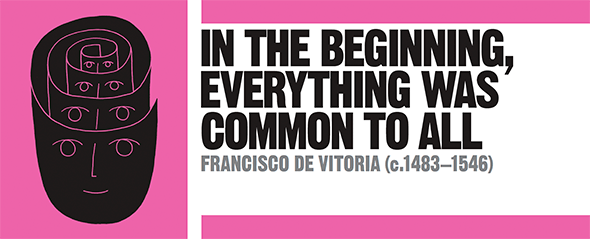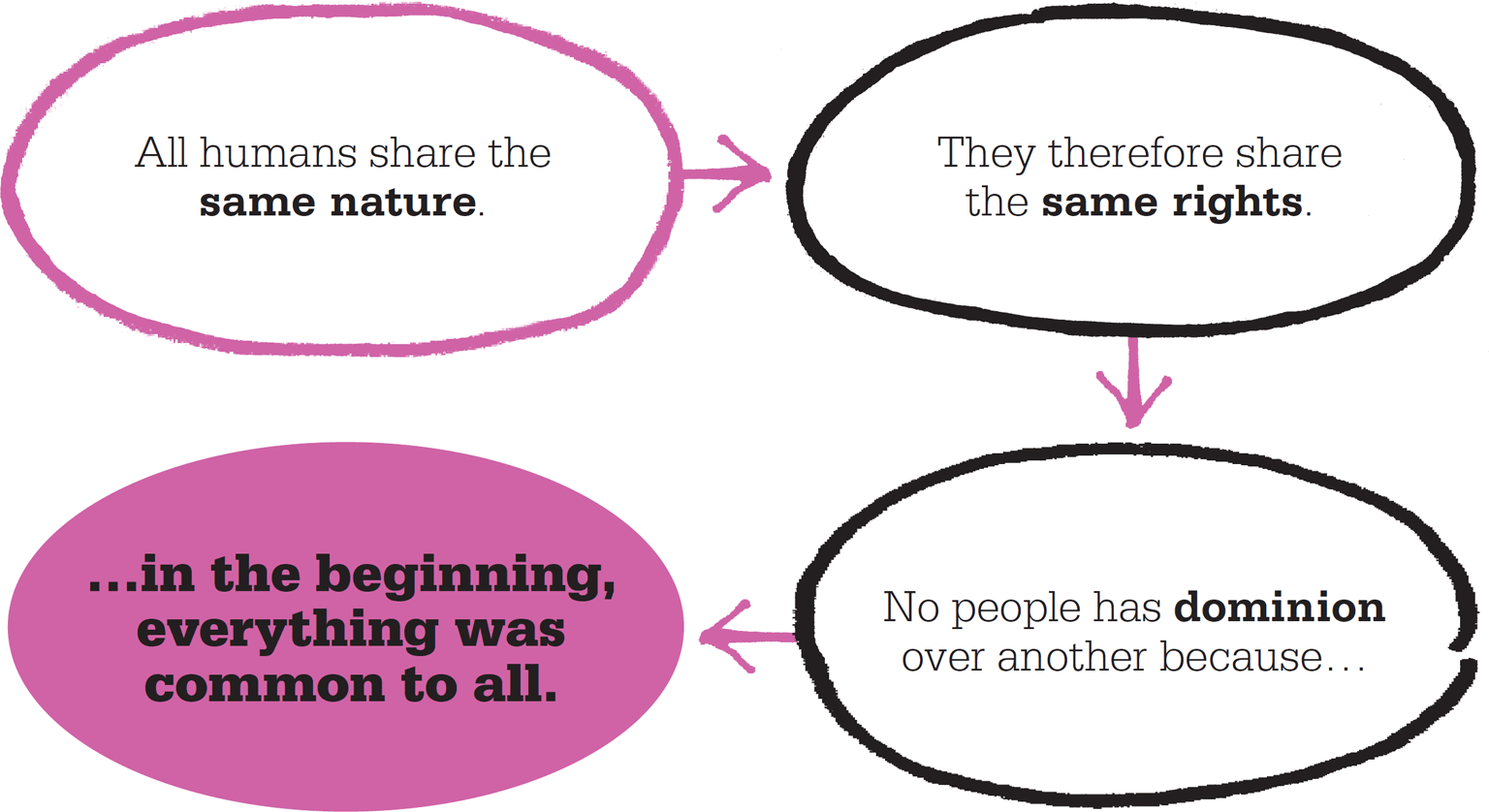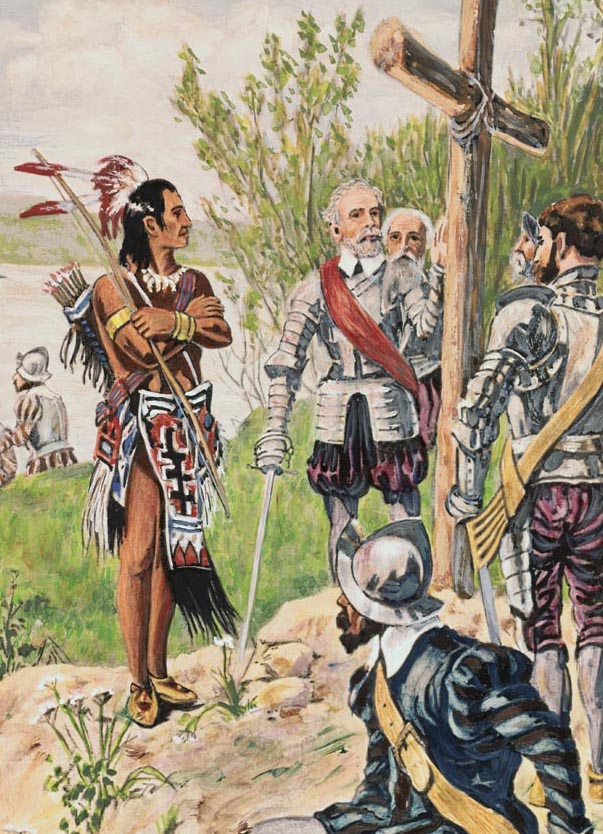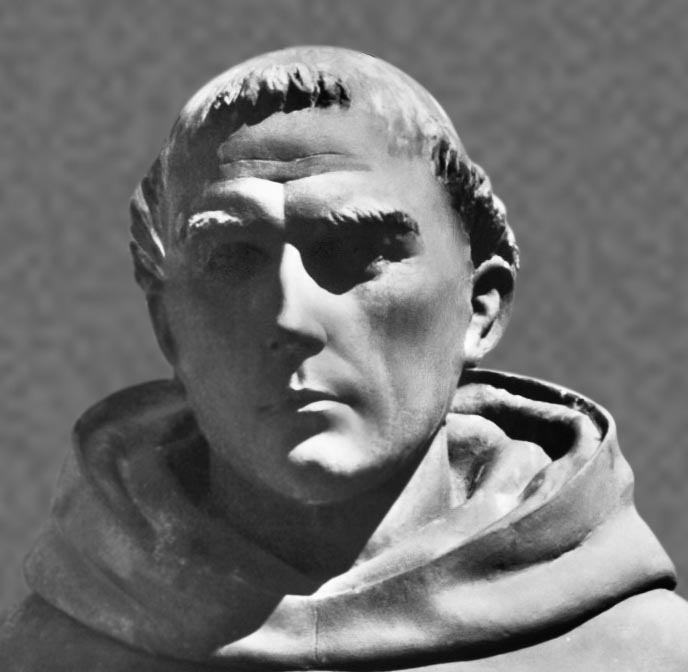
IN CONTEXT
Just war
Colonialism
1267–72 Thomas Aquinas writes Summa Theologica, the most influential work of Christian theology in the West.
1492 Genoese explorer Christopher Columbus lands in the New World, leading to a race for conquest in the Old World.
1625 Drawing on de Vitoria’s teachings, Hugo Grotius publishes On the Law of War and Peace, a seminal work for the formulation of international law.
1899 The first Hague Conference takes place, resulting in the first formal convention on the laws of war and war crimes.
Francisco de Vitoria was central among the group of theologians at the University of Salamanca, Spain, who founded the School of Salamanca in the early 16th century. They revolutionized the concept of natural law by emphasizing individual liberty, rights, and equality.

With the discovery of the New World and the decline of papal authority, European states were competing to colonize as much of the newly conquered land as possible. The School of Salamanca was the first and the most potent intellectual force to criticize these actions. De Vitoria believed that the origin of law emanated from nature itself. Given that all humans are born from and share the same nature, he argued that all had equal rights to life and liberty.
Illegitimate conquests
De Vitoria’s principle of natural law and the universality of rights ran counter to the dominant view of the Church and the European colonial powers. Flowing from Christian dogma, the dominant morality held that it was legitimate to conquer and rule the indigenous Americans. De Vitoria regarded the conquest as illegitimate, based on the logic that “in the beginning, everything was common to all.” If unbelievers were not necessarily evil, and Christians could conduct evil acts, it was not logical to consider Christians to have rights over unbelievers.
This view also undermined the divine right of kings to rule. It led to many disagreements between de Vitoria and Charles V, King of Spain and Holy Roman Emperor, but the king nevertheless still went to de Vitoria for counsel.
Can war be just?
De Vitoria’s principle of natural law and the rights of people also related to his scholarship on the theory of just war. The moral and religious justifications for war were fiercely debated at the time of the conquest of the New World. The central issue was how the teachings of Christ could be reconciled with political realities. Drawing from the works of Thomas Aquinas, who distinguished between just cause and just conduct of war, the School of Salamanca further developed this body of thought. De Vitoria did not accept religious arguments as justifications for war. War was not justified simply because people were unbelievers, or because they refused conversion. Belief could not be forced—it was an act of free will bestowed by God.
"Ownership and dominion are based either on natural law or human law; therefore they are not destroyed by want of faith."
Francisco de Vitoria
De Vitoria not only separated issues of justice and morality from religion, but also laid the foundation for future scholarship on international law and human rights. The doctrine that warring states have responsibilities, and that non-combatants have rights—enshrined in the Hague and Geneva conventions—can be traced back to his teachings. Today, de Vitoria’s doctrine is still quoted when discussing the rights of indigenous people in international law.

De Vitoria deplored the conquest of the Americas, rejecting the assumed superiority of the Christian conquistadors over the non-believing indigenous population.
FRANCISCO DE VITORIA

Francisco was born in the small Basque town of Vitoria. Prior to taking up his post at the university in Salamanca, de Vitoria spent 18 formative years in Paris, where he studied at the Sorbonne University and lectured in a Dominican college.
De Vitoria became a Dominican friar, a professor of theology at the University of Salamanca, and was elected prima chair of theology—the most senior position in the department—in 1526. He was the founding member of the School of Salamanca—an influential group of scholars that included Domingo de Soto, Martin de Azpilcueta, Tomas de Mercado, and Francisco Suárez—who strove to redefine man’s relationship with God within the Catholic tradition. De Vitoria studied the teachings of fellow Dominican and theologian Thomas Aquinas, whose work was a cornerstone of the School of Salamanca.
Key works
1532 Of Indians
1532 Of the Spanish War Against the Barbarians
1557 Theological Reflections
See also: Thomas Aquinas • Francisco Suárez • Hugo Grotius
